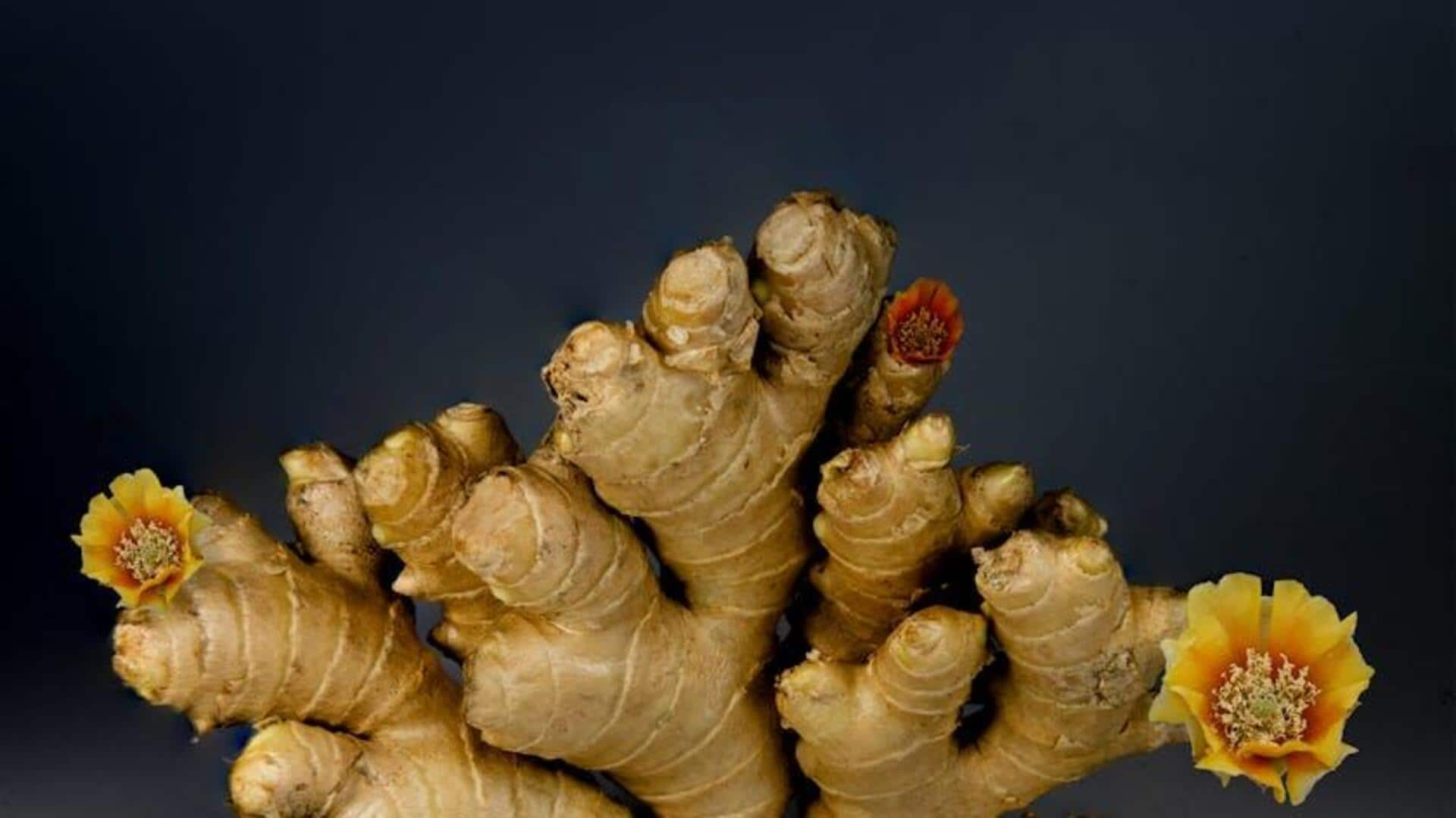
Role of ginger in easing pain and stiffness
What's the story
Ginger, a common kitchen spice, is drawing attention for its potential benefits in managing arthritis.
Known for its natural anti-inflammatory properties, ginger can be of help to those suffering from this chronic condition.
The root contains compounds that can help cut down inflammation and pain associated with arthritis.
Here's a look at how you can add ginger to your daily routine to alleviate symptoms and improve quality of life.
Active ingredients
Anti-inflammatory compounds in ginger
Ginger naturally contains active compounds such as gingerols and shogaols, which are believed to have anti-inflammatory properties.
These compounds may inhibit the production of certain chemicals in the body that promote inflammation.
By reducing these chemicals, ginger could help lessen swelling and pain in joints affected by arthritis.
Usage options
Methods of consumption
There are several ways to include ginger in your diet.
You can add fresh ginger to teas or smoothies, while powdered ginger can be used as a spice while cooking.
Some also prefer ginger supplements available in capsule form.
Each method provides a different concentration of active ingredients, giving you the option to choose what works for you.
Joint relief
Potential benefits on joint health
Having ginger regularly may improve your joint health in the long run.
Some studies even indicate that it may help reduce stiffness and increase mobility in arthritis patients.
Although results may vary from person to person, adding ginger to a balanced diet may promote overall joint function.
Precautions
Considerations before use
Before you go dumping buckets of ginger into your food, it is essential to check for any possible interactions with medications or pre-existing health issues.
It is best to consult a healthcare provider, particularly if you are on blood-thinning medications or have gallbladder problems.
This way, you can ensure safe usage according to one's health requirements.